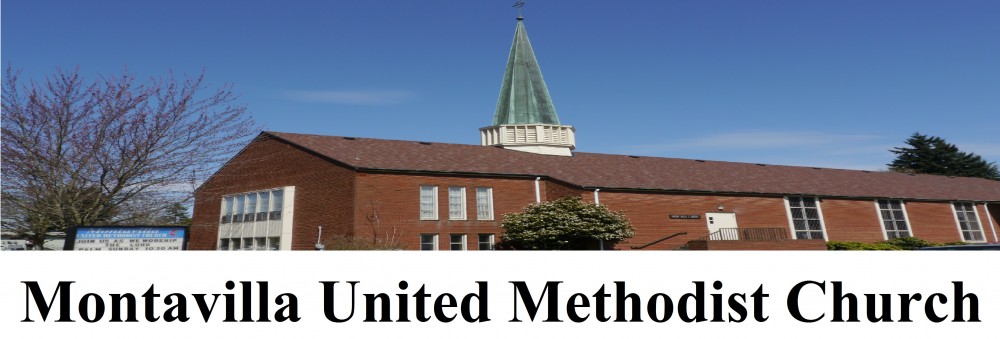How Much is Enough. Joy
Montavilla United Methodist
December 8, 2024
Rev Heather Riggs
When I was maybe 12, I remember being at a family holiday family gathering where my Aunt Sandy brought deviled eggs. I love deviled eggs! My grandmother liked for the children to be served first, so I was near the front of the line, and as we were serving ourselves buffett style, when I got to my Aunt’s deviled eggs, I took *3* deviled eggs. My cousin, who is about the same age as I am, told me that I was being rude. He said, you should only take one, until everyone else has one, then you can come back for a second one if there’s any left.
I was really embarrassed. I had already touched all 3 eggs because we were picking them up with our fingers, so I couldn’t put them back, so there they were, 2 more eggs than I should have taken, loudly proclaiming my gluttony for all to see!
In my defense, my parents never taught me that. I was an only child, so the topic of taking one until everyone was served just didn’t come up.
Nobody had taught me that if you have more than enough for yourself, guess what? You are eating somebody else’s portion. It’s not that you worked harder. It’s not that you are better than them or somehow more deserving. It’s not that you made it first in line. (Life isn’t a Black Friday doorbuster!) if you have more than enough for yourself You’ve got somebody else’s portion.
I think this is what John the Baptist is talking about in our second reading when he says,
“Whoever has two shirts must share with the one who has none, and whoever has food must do the same.”
I mean, having 2 shirts doesn’t sound like more than enough to us today, but John was one of those, extreme minimalism, everything I own fits in my backpack, kind of people!
So I don’t think that having 2 shirts means you have too much. But having way more resources than anybody could use in one lifetime definitely is.
The less extreme, more applicable point is that people who have way more than enough have got somebody else’s portion.
In the first Century AD that John and Jesus were born into, the economy was basically divided into people who had more than enough and people who had not nearly enough.
There were rulers, major landholders, and Roman officials who had more than enough, and there was everyone else who was just barely scraping by.
Sounds kinda familiar, doesn’t it?
Major Landholders were building extra barns to hold all their olive oil and wine while they didn’t pay their laborers enough to live on.
The Roman Officials and local rulers, like Herod, lived in palaces, where they never had to look at the poor while they are the food and wore the clothes that the poor could not afford due to low wages and extortionate taxes, levied to pay for the constant wars to expand the Roman Empire.
Roman Tax collectors collected taxes from everyone, and they didn’t get paid a wage for their tax collecting, so they would extort more money out of the people to line their own pockets. Roman soldiers worked with the tax collectors as enforcers and took a cut from the tax collectors for their services. Soldiers sometimes also harassed people into giving them more money.
Which is why John specifically gives instructions for tax collectors and Roman Soldiers. They were literally taking food from the plates of the poor, because the poor are much easier to harass than the rich, who can afford their own protection.
This is why John says to the Tax collectors,
“Collect no more than you are authorized to collect.”
And to the Soldiers,
“Don’t cheat or harass anyone, and be satisfied with your pay.”
This is the world in which the Innkeeper made room for Joseph and a very pregnant Mary.
Some Bible scholars think that there was no such a thing as an Inn in the first century. When Jesus sent the disciples out, he told them to just wait for someone to offer them a place to stay in their home, so maybe that’s what everyone did?
What if the Innkeeper of our childhood Christmas pageants, was just an average homeowner?
What if, all the houses who had a guest room were already full, and Inna Keeper was a poor widow, living in a one room house with her son and his wife and 4 grandchildren and the only room they had was the shed where they kept a couple of milk goats?
I can totally picture that because I’ve served in rich churches who could afford to hire me as a musician and I’ve served in poor churches as a volunteer, and something that I’ve noticed is that people who have experienced not having enough, are always willing to share what little they have, because they have a theology of abundance…a belief that God will provide enough, where there is not enough.
Today’s Isaiah reading comes from that place of joyous abundance. Drawing water with joy from the Springs of salvation that is ever-flowing. Placing our trust in the abundance of God even in a season where we cannot see God’s abundance is a subversive kind of joy. A joy that rejects the narrative that there is not enough to meet everyone’s needs. A joy that says, God has created more than enough for everyone if we just share what God has given us.
Sometimes the problems feel so large that we feel like we’re not enough.
We don’t know enough.
We don’t have enough.
We ourselves, feel like I am not enough.
And so we freeze, because we’re not sure if we can do anything meaningful.
We get caught up in the narrative of scarcity that whispers insidiously, right into our biggest insecurities.
Whispering that since we can’t fix it all, then we can’t do anything!
This lie steals our hope and steals our joy and prevents us from doing anything at all.
It’s true that we can’t fix it all, but we can do what’s right in front of us.
Grandma Inna Keeper didn’t have much to offer, but there was no way she was going to let that baby be born on the street, even when the only place she could offer was a goat shed!
Together, as a church, we have more than a goat shed.
We have a large building with many spare rooms! Although sometimes it may feel like a broken down shed with the backlog of maintenance!
But we do have a big building, and endowment funds, and most importantly we have one another – us, together praying and serving and loving one another and our neighbors as Jesus asked us to.
We the Beloved Community:
- Who have given so much of your time to help house houseless families with Family Promise.
- Who have lead so many urgently needed ministries in this place over the last 100 years!
- Who are, right now, discerning how we can make more room in this building, that we are stewarding for God, for ministries that put clothing and food, and dignity and wellbeing back into the lives of people who’s portions have been devoured by those who have more than enough.
This isn’t easy discernment.
It’s hard to imagine a way of using the building that we’ve never seen before!
It’s hard to envision how we will do ministry when we aren’t spending so much time on keeping the dang building in repair!
It’s hard to imagine what it will feel like to not be in control of the whole building anymore.
But we were never in control of this building to begin with!
This building belongs to God!
Many of your parents helped build this building and steward this building for God, so that there would be a Methodist Church in this community. A Methodist church who believes in
doing no harm
Doing all the good we can, and
Deepening our connection to God, the source of all our joy.
The insidious whispers of scarcity and not enough-ness have always sought to prevent the people of God from believing in God’s abundance.
But God offers us joyful abundance as a much better replacement for our fears.
(slide1 : What were you doing together when you experienced Joy as a part of this Church?)
This week. Your assignment is to talk with one another about the times you experienced joy as a part of this Church.
Remember, the church is not a building!
The Church is us – the Community of the Beloved!
So find someone to sit next to, and pair up in 2’s or 3’s and each person share about one time that you experienced joy as a part of this church.
Let’s bring up our online friends:
Who would like to share?
Raise your hand if the thing you shared could still be done if we don’t control the building and need to schedule space to do it?
Take this question home with you. Maybe discuss it with your friends and families:
(slide 2: What is possible for us as a Church, as individuals, as Portlanders, as Oregonians, as Americans, if we say no to the lie of scarcity and embrace God’s joyful abundance?

